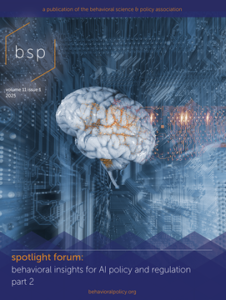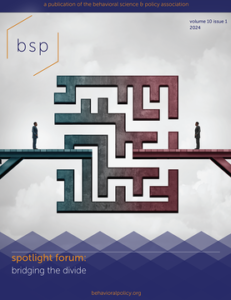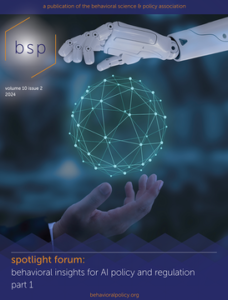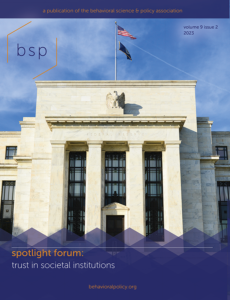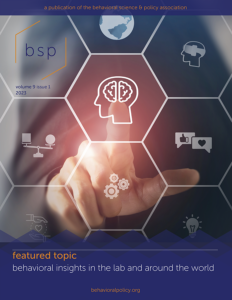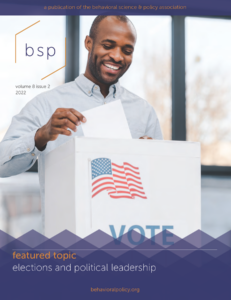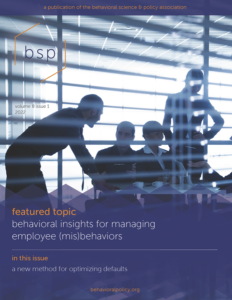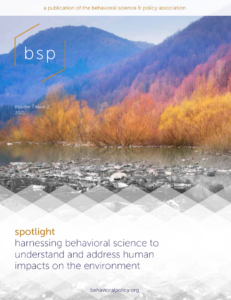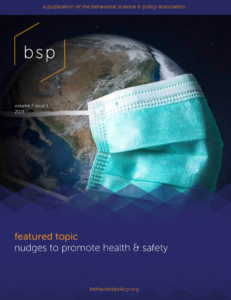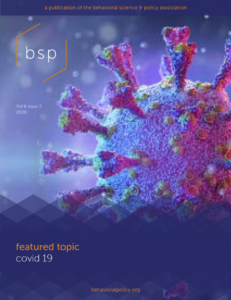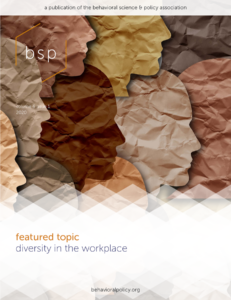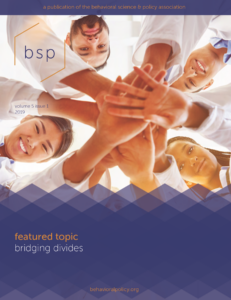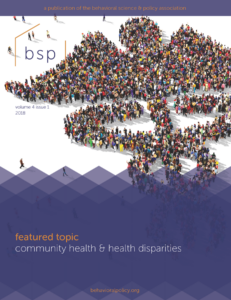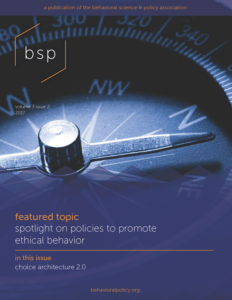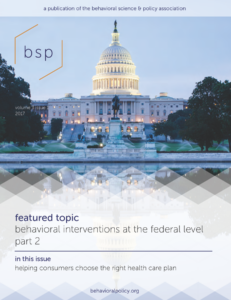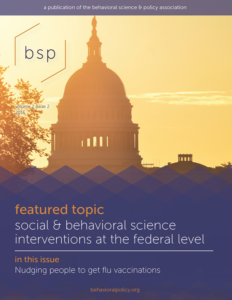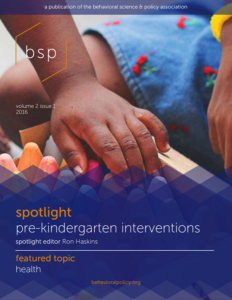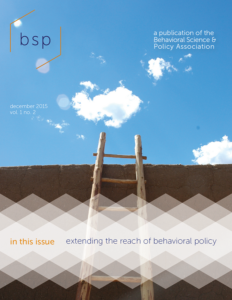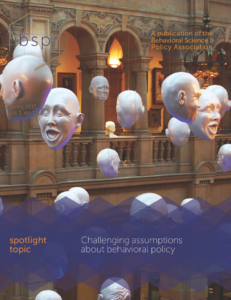Publications
- Search find articles of interest
in the BSP archive - past issues view every volume of BSP to date
- Subscribe subscribe to BSP to get access to...
- Submit we are currently seeking submissions
Can a visual values-affirmation intervention improve test scores of students in areas affected by crisis?
Using communication to boost vaccination: Lessons for COVID-19 from evaluations of eight large-scale programs to promote routine vaccinations
Hierarchy position & personality predict politicians’ choice of information sources
Leadership & overconfidence
Improving election outcomes through a better understanding of heuristic evaluation of candidates
Penalties for going against type: How sexism shapes voters’ perceptions of candidate character
Encouraging COVID-19 vaccination through behaviorally informed reminders: Results from a national randomized field experiment in Israel
Ventilator allocations: The effect of mere identifiability
Nudge versus sludge in gambling warning labels: How the effectiveness of a consumer protection measure can be undermined
Encouraging employees’ review active feedback & participation when rolling out major changes
“Braking” bad: How managers can respond to employee misbehavior
How to choose a default
Leveraging the motivational effects of labels- Lessons from retrofitting
Nudging the commute: Using behaviorally informed interventions to promote sustainable transportation
Harnessing behavioral science to design disposable shopping bag regulations
Six behaviors policymakers should promote to mitigate climate change
Habits to save our habitat: Using the psychology of habits to promote sustainability
How to encourage pro-environmental behaviors without crowding out public support for climate policy
Institutional policies for a healthy Anthropocene society
Making it easier to take environmental actions is not enough
How cities can apply behavioral science to promote public transportation use
Behavioral insights into cash transfers to families with children
Creating a culture of voice
Unlocking human potential through leadership training & development initiatives
Combining a lottery incentive with protection against losing the lottery improves exercise adherence
Using behavioral economic interventions with remote-monitoring technologies to increase physical activity
Incivility awareness could save lives
Editors’ Note
Communicating about diseases that originate in animals: Lessons from the psychology of inductive reasoning
Graphs with logarithmic axes distort lay judgments
Keeping safe versus staying healthy: The effect of regulatory fit on social distancing
Low voice pitch in orally delivered recommendations can increase compliance with hand sanitizer use among young adults
Psychological predictors of prevention behaviors during the COVID-19 pandemic
Nudges emphasizing social norms increased hospital visitors’ hand sanitizer use
Preserving employee trust during crisis
Softening the blow: Incorporating employee perceptions of justice into best practices for layoffs during the COVID-19 pandemic
The coronavirus & work–life inequality: Three evidence-based initiatives to update U.S. work–life employment policies
Managing remote workers during quarantine: Insights from organizational research on boundary management
Adapting the U.S. Air Force’s combat rescue management practices could improve organizational responses to challenges posed by the COVID-19 pandemic
How behavioral science can inform policies to prevent discrimination against the Asian community in the era of COVID-19
Gender differences in preventing the spread of coronavirus
A community-based sociocultural network approach to controlling COVID-19 contagion: Seven suggestions for improving policy
Behavioral insights for minimizing loneliness during the COVID-19 pandemic
Fear & anxiety in the time of COVID-19: How they influence behavior
Vicarious learning in the time of coronavirus
Behavioral insights for containing the COVID-19 pandemic: Some practices in China
Editors’ Note
Keeping safe versus staying healthy: The effect of regulatory fit on social distancing
Fear & anxiety in the time of COVID-19: How they influence behavior
Graphs with logarithmic axes distort lay judgements
Behavioral insights for containing the COVID-19 pandemic: Some practices in China
Communicating about diseases that originate in animals: Lessons from the psychology of inductive reasoning
Gender differences in preventing the spread of coronavirus
How behavioral science can inform policies to prevent discrimination against the Asian community in the era of COVID-19
Low voice pitch in orally delivered recommendations can increase compliance with hand sanitizer use among young adults
Nudges emphasizing social norms increased hospital visitors’ hand sanitizer use
Psychological predictors of prevention behaviors during the COVID-19 pandemic
Policy insights from the new science of well-being

Improving Employee Performance by developing empowering leaders & companies

Synergy from diversity: Managing team diversity to enhance performance

Developing & delivering effective anti-bias training: Challenges & recommendations

Designing more effective practices for reducing workplace inequality

Adapting the U.S. Air Force’s combat rescue management practices could improve organizational responses to challenges posed by the COVID-19 pandemic
The coronavirus & work-life inequality: Three evidence-based initiatives to update U.S. work-life employment policies
Preserving employee trust during crisis
Behavioral insights for minimizing loneliness during the COVID-19 pandemic
A community-based sociocultural network approach to controlling COVID-19 contagion: Seven suggestions for improving policy
Managing remote workers during quarantine: Insights from organizational research on boundary management
Softening the blow: Incorporating employee perceptions of justice into best practices for layoffs during the COVID-19 pandemic
Vicarious learning in the time of coronavirus
Does changing defaults save lives? Effects of presumed consent organ donation policies

How behavioral science can empower parents to improve children’s educational outcomes
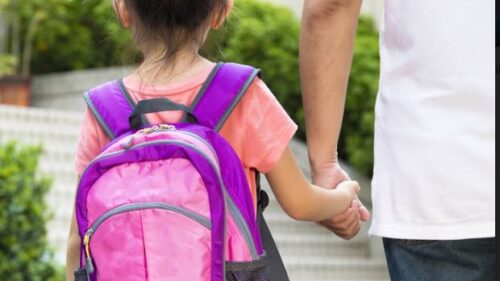
Rebuilding trust between police & communities through procedural justice & reconciliation

Together from afar: Introducing a diary contact technique for improving intergroup relations

Reducing the health toll from U.S. workplace stress

Improving the match between patients’ needs & end-of-life care by increasing patient choice in Medicare

Using pay-for-success financing for supportive housing interventions: Promise & challenges

The ubiquity of data & communication: A double-edged sword for disparities

Applying population health science principles to guide behavioral health policy setting

What is Health Equity?

Treating ethics as a design problem

Regulating for ethical culture

Phasing out a risky technology: An endgame problem in German nuclear power plants?

The role of choice architecture in promoting saving at tax time: Evidence from a large-scale field experiment

Choice architecture 2.0: Behavioral policy as an implicit social interaction

Using behavioral ethics to curb corruption

Increasing benefits & reducing social costs of technological innovations

Overcoming behavioral obstacles to escaping poverty

The costs of poor health (plan choices) & prescriptions for reform

Behavioral policy interventions to address education inequality

Behavioral science tools to strengthen energy & environmental policy

Behaviorally informed policies for household financial decisionmaking

A behavioral blueprint for improving health care policy

Improving voting systems’ user-friendliness, reliability, & security
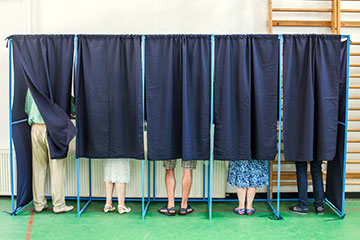
combating biased decisionmaking & promoting justice & equal treatment

nudging by government: progress, impact, & lessons learned

identity traps: how to think about race & policing

using identity-based motivation to improve the nation’s health without breaking the bank

using organizational science research to address u.s. federal agencies’ management & labor needs
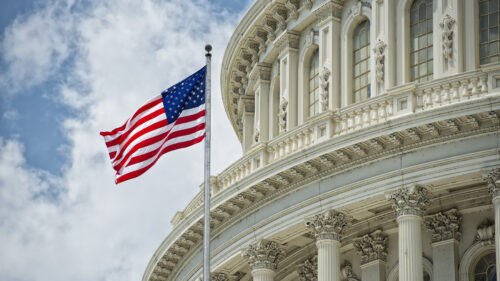
Default clinic appointments promote influenza vaccination uptake without a displacement effect

applying behavioral sciences in the service of four major economic problems

Reimagining accountability in K–12 education

Healthy through habit: Interventions for initiating & maintaining health behavior change

Making the truth stick & the myths fade: Lessons from cognitive psychology

A 10-year strategy of increased coordination & comprehensive investments in early child development

Evidence for the benefits of state prekindergarten programs: Myth & misrepresentation

Home visiting programs: Four evidence-based lessons for policymakers

Launching Preschool 2.0: A road map to high-quality public programs at scale

Reforming Head Start for the 21st century: A policy prescription

American policy on early childhood education & development: Many programs, great hopes, modest impacts

Beyond good intentions: Prompting people to make plans improves follow-through on important tasks

New directions for policies aimed at strengthening low-income couples

Blinding prosecutors to defendants’ race: A policy proposal to reduce unconscious bias in the criminal justice system
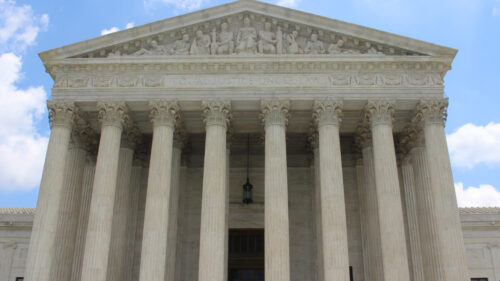
Improving the communication of uncertainty in climate science and intelligence analysis

A personal touch in text messaging can improve microloan repayment

Belonging nowhere: Marginalization & radicalization risk among Muslim immigrants

Moving citizens online: Using salience & message framing to motivate behavior change

The White House Social & Behavioral Sciences Team: Lessons learned from year one
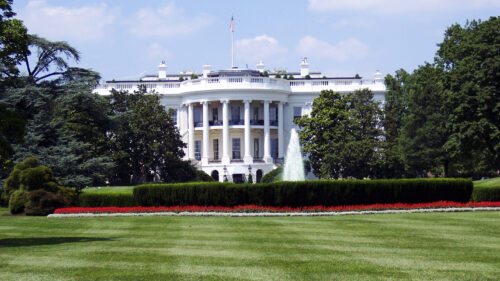
Payer mix & financial health drive hospital quality: Implications for value-based reimbursement policies

Designing better energy metrics for consumers

Time to retire: Why Americans claim benefits early & how to encourage delay

Workplace stressors & health outcomes: Health policy for the workplace

Bridging the divide between behavioral science & policy

Warning: You are about to be nudged

Active choosing or default rules? The policymaker’s dilemma

Small behavioral science–informed changes can produce large policy-relevant effects

Intuition is not evidence: Prescriptions for behavioral interventions from social psychology

Thinking of Submitting a Paper? Ask the Editors!
Want to submit a paper to BSP but not sure whether you have the right angle?
BSP has a new 'ask the editors' feature available for potential authors. Simply click below to send us an email, and we will respond within 72 hours.
Ask the EditorsBecome a Member
There is a growing movement among public and private sector leaders to help bridge the divide between behavioral research and policy. We are a key part of this movement — as an information hub and as a community builder, fostering collaboration and connecting those applying behavioral science to specific problems for the greater good. We need you to join us in making this effort have a lasting impact.
Join Us